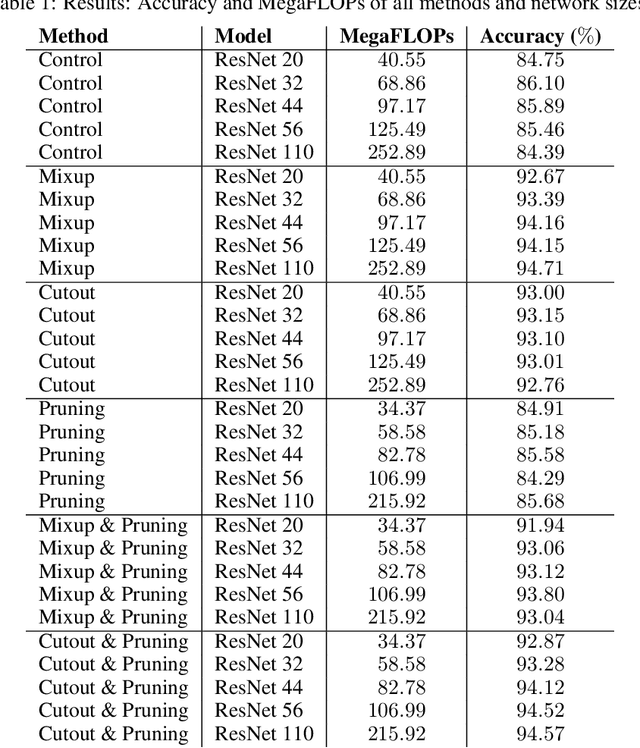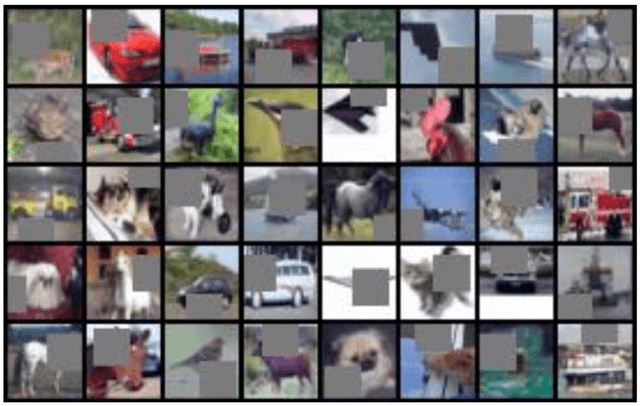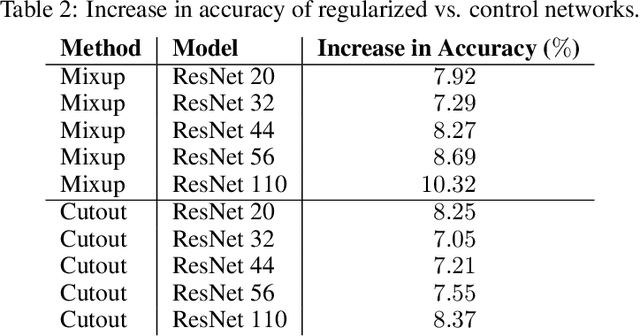Tai Vu
How Not to Give a FLOP: Combining Regularization and Pruning for Efficient Inference
Apr 09, 2020



Abstract:The challenge of speeding up deep learning models during the deployment phase has been a large, expensive bottleneck in the modern tech industry. In this paper, we examine the use of both regularization and pruning for reduced computational complexity and more efficient inference in Deep Neural Networks (DNNs). In particular, we apply mixup and cutout regularizations and soft filter pruning to the ResNet architecture, focusing on minimizing floating-point operations (FLOPs). Furthermore, by using regularization in conjunction with network pruning, we show that such a combination makes a substantial improvement over each of the two techniques individually.
FlapAI Bird: Training an Agent to Play Flappy Bird Using Reinforcement Learning Techniques
Apr 08, 2020



Abstract:Reinforcement learning is one of the most popular approaches for automated game playing. This method allows an agent to estimate the expected utility of its state in order to make optimal actions in an unknown environment. We seek to apply reinforcement learning algorithms to the game Flappy Bird. We implement SARSA and Q-Learning with some modifications such as $\epsilon$-greedy policy, discretization and backward updates. We find that SARSA and Q-Learning outperform the baseline, regularly achieving scores of 1400+, with the highest in-game score of 2069.
Combating The Machine Ethics Crisis: An Educational Approach
Apr 02, 2020Abstract:In recent years, the availability of massive data sets and improved computing power have driven the advent of cutting-edge machine learning algorithms. However, this trend has triggered growing concerns associated with its ethical issues. In response to such a phenomenon, this study proposes a feasible solution that combines ethics and computer science materials in artificial intelligent classrooms. In addition, the paper presents several arguments and evidence in favor of the necessity and effectiveness of this integrated approach.
 Add to Chrome
Add to Chrome Add to Firefox
Add to Firefox Add to Edge
Add to Edge